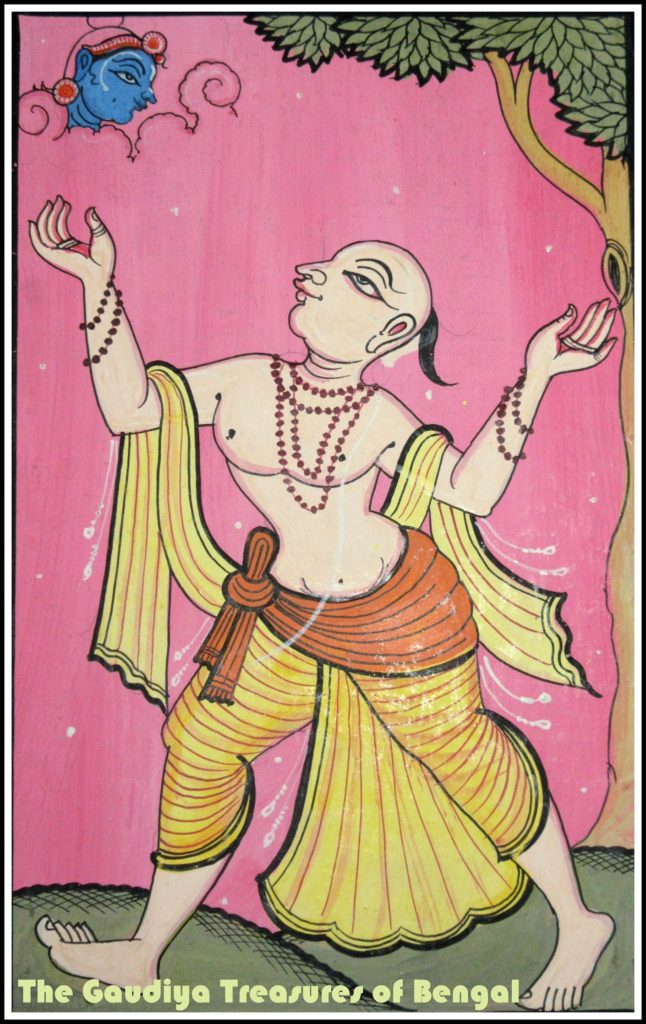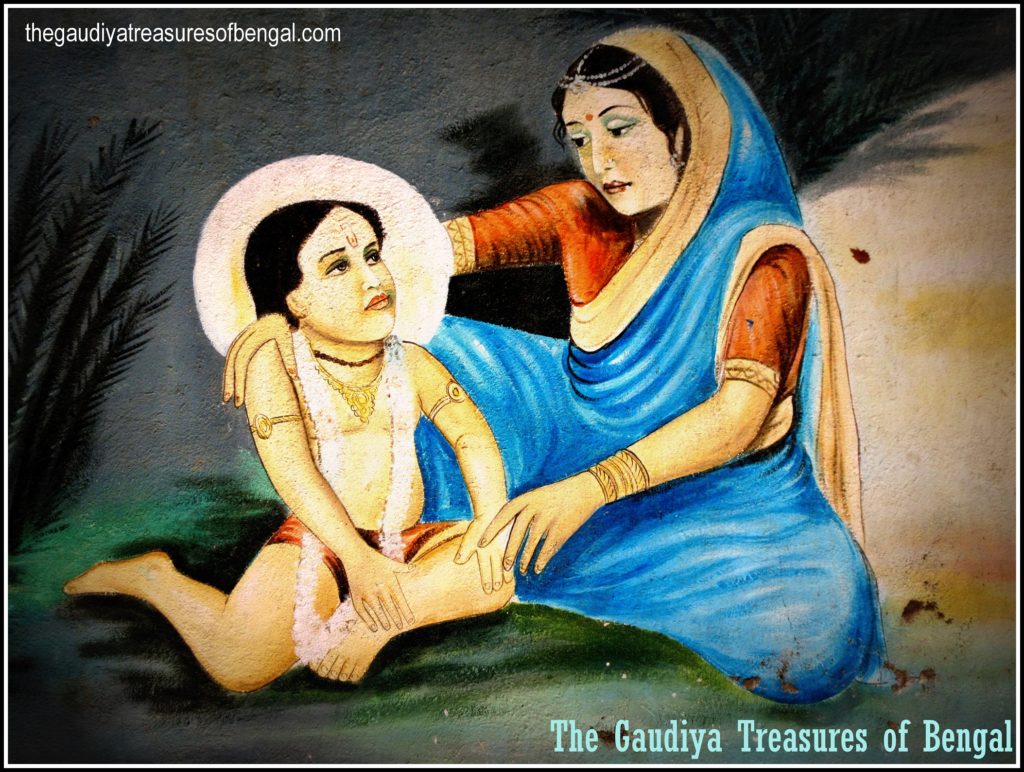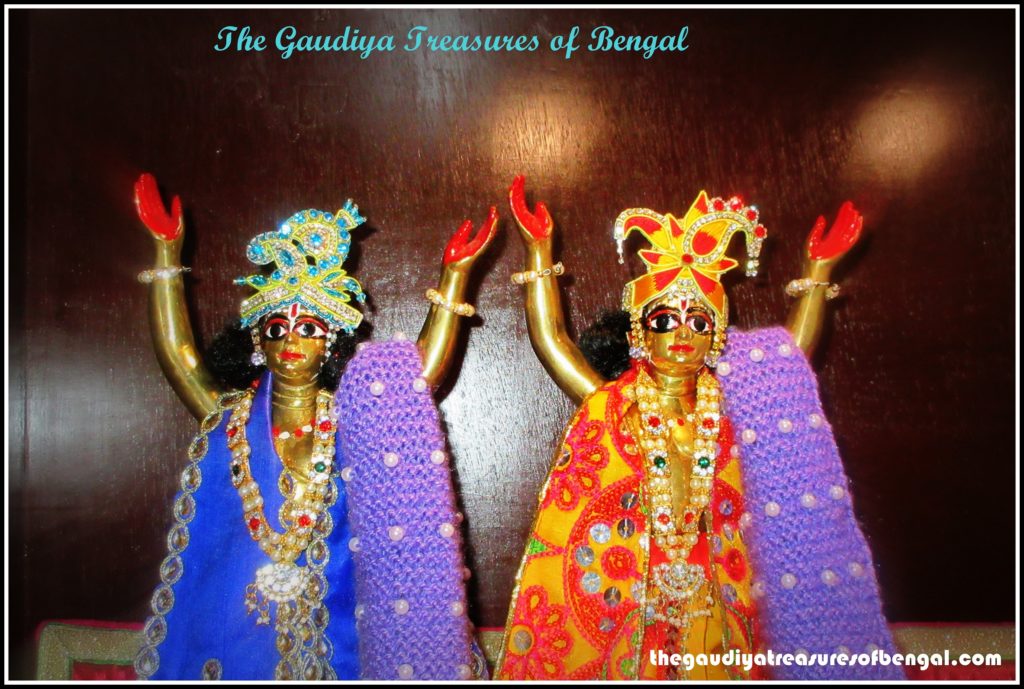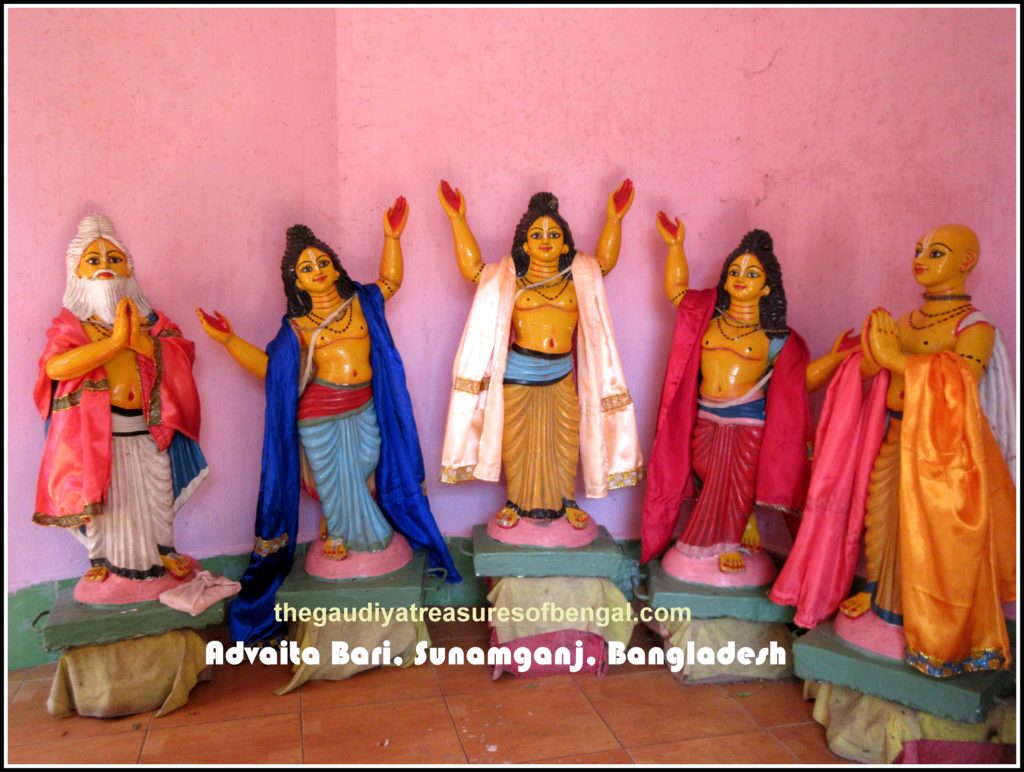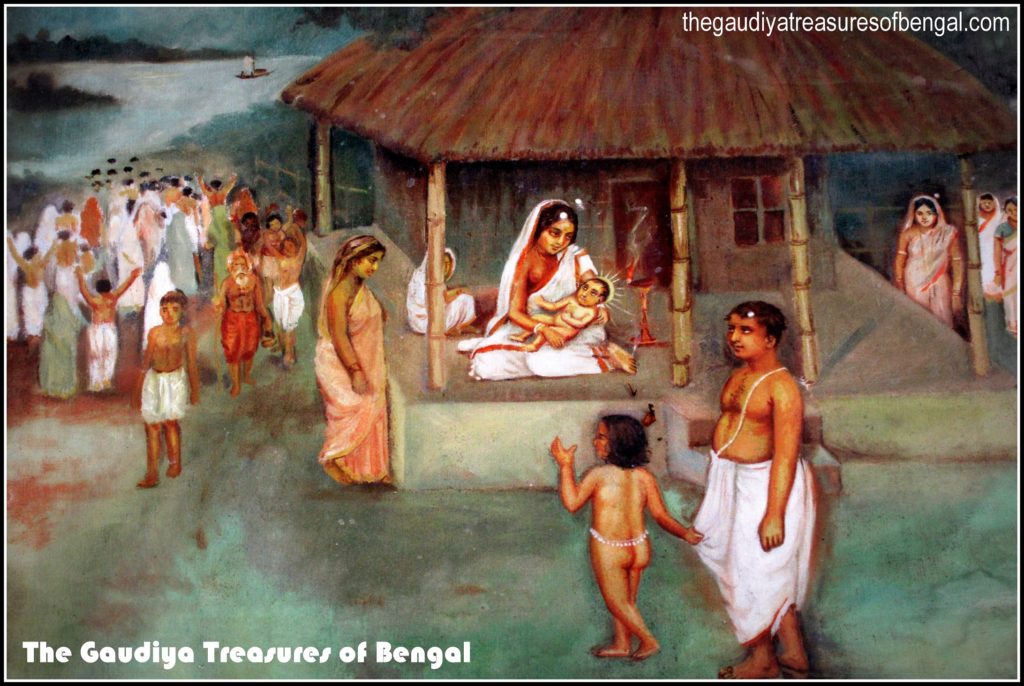
Sri Chaitanya Mahaprabhu, the Supreme Personality of Godhead, had mercifully appeared at Yogpeeth (in Mayapur) about 500 years ago (in the year 1486 AD). The appearance of Chaitanya Mahaprabhu is celebrated as ‘Gaura Purnima’ by the Gaudiya Vaishnava devotees worldwide. The word ‘Yoga’ means ‘connection’ and the term ‘Yogpeeth’ denotes the place where the Supreme Lord connects with or descends into this material world.
The identity of Lord Chaitanya as the Supreme Personality of Godhead can be verified in several Vedic scriptures like Srimad Bhagavatam, Mahabharata, Garuda Purana, Nrsimha Purana, Padma Purana, Bhavishya Purana, Narada Purana, etc. We are quoting just two of such references below, for the pleasure of the devotees.
aham purno bhavisyami yuga sandhyau visesatah
mayapure navadvipe bhavisyami saci sutah
(Garuda Purana)
Translation – In the future, in first part of Kali yuga, I shall appear in my complete spiritual form at Mayapura, Navadvipa and become the son of Saci.
The mission of the Lord, along with a description of His golden complexion and how He descends with His confidential associates in this age of Kali, to initiate the Sankirtana Yajna is revealed in Srimad Bhagavatam (Bhagavata Purana) –
Krishna varnam tvishakrishnam sangopangastra-parsadam
yajnaih sankirtana prayair yajanti hi sumedhasah
(Srimad Bhagavatam 11.5.32)
Gaura Purnima – The dire situation of Navadvipa before Sri Chaitanya Mahaprabhu had appeared:
Before Lord Chaitanya had appeared in Navadvipa, its residents were largely preoccupied with material pursuits. People were egoistic about their material possessions and lacking in God consciousness. Those who engaged in discussing Bhagavad Gita or Srimad Bhagavatam, did not touch upon its essence of devotional service. The holy names of Krishna were nowhere to be heard in the entire town of Navadvipa. Being absorbed in the illusory potency of the Lord, people remained in forgetfulness of their eternal master. They misused their wealth in extravagant wedding ceremonies of their children.




